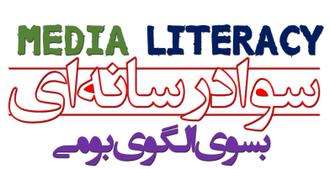What is Media Literacy
In this post, we will explore the role and purpose of media literacy in society in history and today. Examples of media, mass media communications and media literacy will be explained and evaluated in order to form an understanding of why media literacy is critically important for the today life.
First of all we have to answer this question “what is media”? And how does it differ from mass media? Media is the means of communication that reaches or influences people, such as radio and television, newspapers, and magazines. Mass media does the exact same, but with a goal of reaching much larger numbers of people. Both play an enormous role in our lives, despite the fact that media consumption often goes easily unnoticed. But what to do with all this information? That's where media literacy comes in!
Media literacy involves the ability to access, analyze, evaluate, and create media. Media communication has become quite a force in society today, allowing for consumption of loads of information. And today's digital consumers are masters of media multitasking, which involves simultaneous contact with two or more other forms of media. As consumers of media, it is important to have the ability to understand, translate, and use the information we receive.
Media literacy is actually not a new phenomenon. Starting with the invention of the printing press in the 1400s, media has developed as a form of communication beyond the interpersonal. Newspapers and magazines were a media force in the Industrial Era.
Continual advances in technology expose us to more and more media. The use of technology and digital literacy go hand in hand. Technology allows for greater expansion of mass media outlets, starting with the Internet, but we also must consider Facebook, Twitter, Instagram, and the list goes on and on.
There are different purposes for mass communication, including to inform, to amuse, to persuade, and to enlighten.
Now that we know what media literacy is and how it is ingrained into our lives, let's talk about how we, as the consumers, can decipher all the messages being sent our way. There are five key questions to ask of any media:
1. Who created the message that is being sent?
2. What techniques were used to attract my attention?
3. How might other people understand or interpret this message differently from me?
4. Are there any lifestyles, values or points of view that are not represented or are omitted from this message?
5. Why was this message sent?
By asking these 5 simple questions, you have empowered yourself with media literacy! If you have the necessary awareness of the media, you can analyze the media, reflect on it, and then take action if you decide.



 سنگ مصنوعی
سنگ مصنوعی